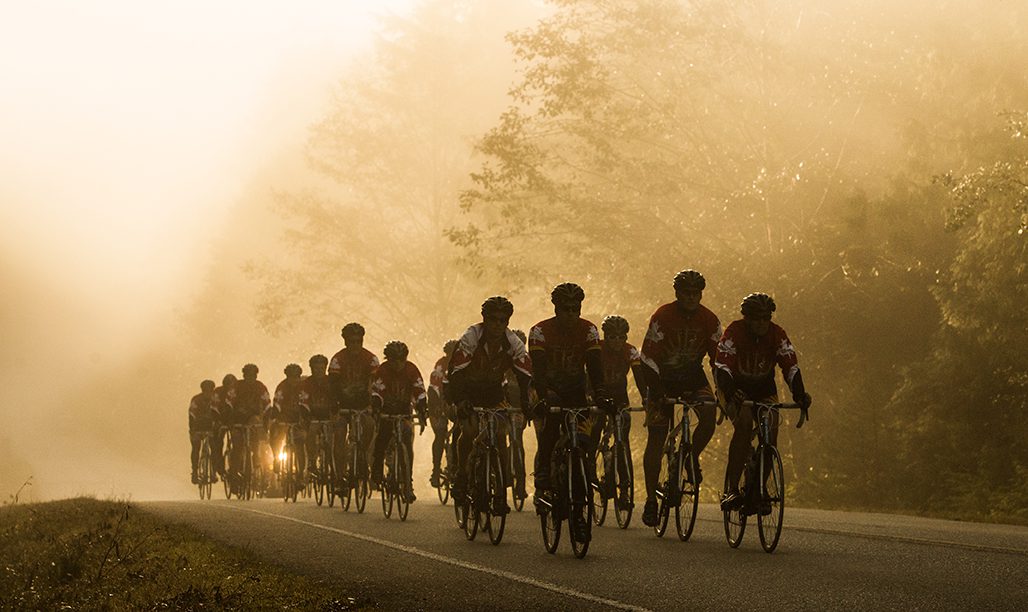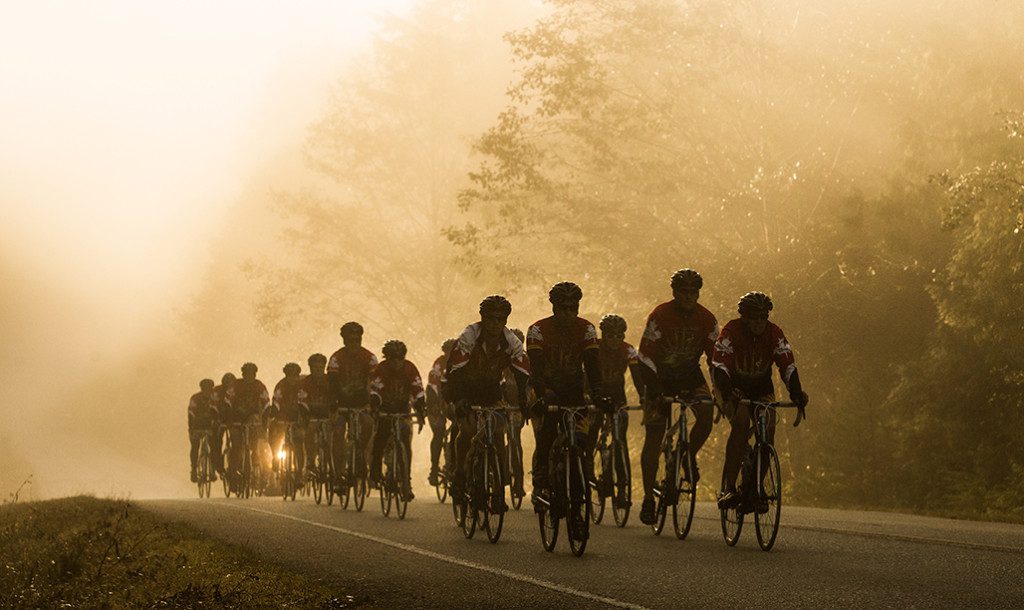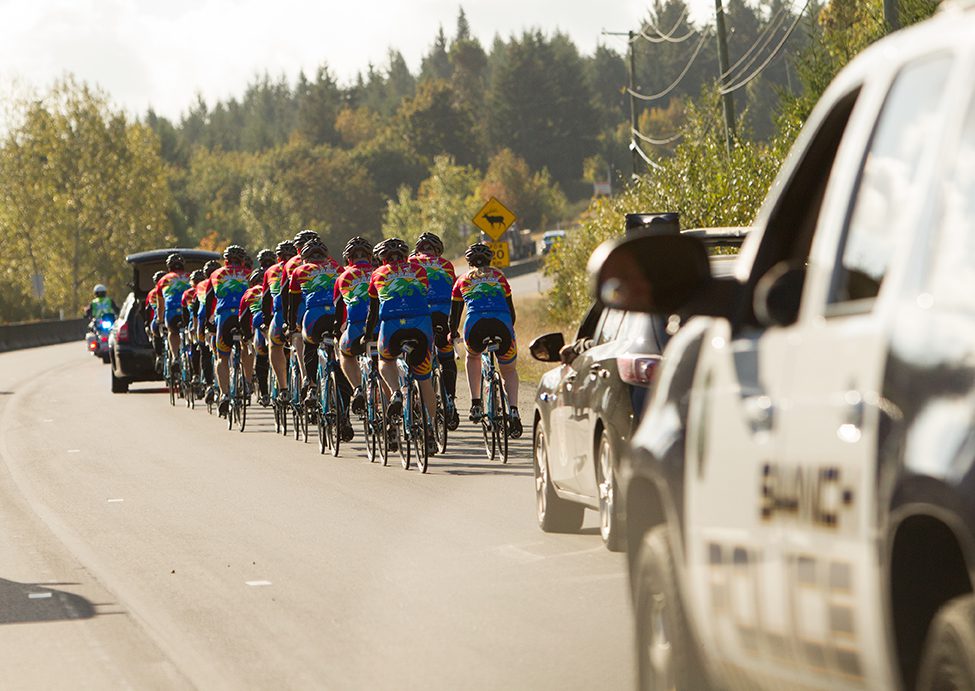2015 Cops for Cancer Tour de Rock rolls to an emotional finish in Victoria, British Columbia
On September 20, a squad of 21 riders set out from Port Alice to Port Hardy on Vancouver Island, B.C., riding south.


On September 20, a squad of 21 riders set out from Port Alice to Port Hardy on Vancouver Island, B.C., riding south. After reaching Port Hardy, the cyclists continued on course by another 97 kilometres, their route then taking them to Port McNeill, British Columbia.
The following day, they left for Woss, then Sayward — another 140 kilometres. The day after, they were off again, not missing a kilometre.
Since 1998, the cyclists — though their ranks have no doubt changed here and there — have embarked on the same ride, for the same purpose. It’s called the Cops for Cancer Tour de Rock, a marathon haul over the course of two weeks that takes them from the remote, windswept northern shores of Vancouver Island to its bustling south, over 1,000 kilometres in all. Along the way, the ride swings inland, crossing the Alberni Valley, and proceeds towards the wild Pacific coastlines of Tofino and Ucluelet.
An extraordinary group of men & women! @TourdeRock 2015 #CopsForCancer riders: 1100 kms #forthekids Amazing! #poltwt pic.twitter.com/QDpajiIcR6
— Saanich PD Community (@SaanichPDclssgt) October 2, 2015
Today, the 2015 ride reached its conclusion in Victoria, B.C.’s capital city. Members of the squad, all representatives of west coast police detachments, rolled to the finish with more than just 1,100 total kilometres of riding behind them. There’s also the greater purpose of such a dedicated ride. Proceeds raised by the trip are donated to the Canadian Cancer Society, earmarked to fund pediatric cancer research and support kids diagnosed with the disease. In the Tour’s eighteen-year history, over $20 million has been raised, all to the same end.
On this year’s ride alone, over $500,000 was raised by the squad’s halfway point mid-Vancouver Island.
With this year’s Tour de Rock at a close, participating cyclists, on the ride’s blog, speak of returning home — many riders are from the Victoria area — in the same awed, emotional way that they discuss their reasons for having done the ride in the first place. As changed as they may have been by the 1,100 km of riding, the less-physical experiences gleaned along the way — and for many, the personal reasons that prompted their participation in the ride itself — seem to have done the same. It’s something that Allison Wood of the Inland District RCMP, one of this year’s riders, movingly described in her own published account.

“As this emotional journey draws to an end tomorrow, I jsut can’t believe the level of support that we have received from our families, our trainers, our support team, our communities and from complete strangers,” she wrote. “I can’t tell you how many times today I heard people shout, ‘Welcome home!’ — what a feeling!”
But hand in hand with that, she said, was another, even more profound feeling. “At the same time, of all the stories I have heard since my Tour de Rock experience began,” she said, “there is one thing that sticks with me. It was from a mother who said, ‘When you hear your child’s name and cancer in the same sentence, your world is never the same.'”
“I will take this with me and I’ll remember this forever,” she concluded.
